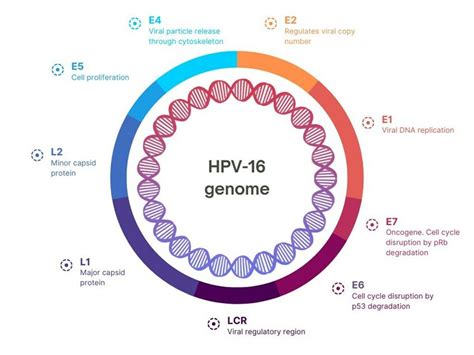Emotionally Focused Therapy: Improve Relationships

Emotionally Focused Therapy (EFT) is a highly effective approach to improving relationships, developed by Dr. Sue Johnson and her colleagues. This therapy model is rooted in the idea that emotions play a central role in the formation and maintenance of intimate relationships. By focusing on the emotional experiences of individuals within a relationship, EFT aims to create a secure and nurturing bond between partners.
At its core, EFT is based on the concept of attachment theory, which suggests that humans have an innate tendency to seek comfort, security, and closeness with others. This attachment style is shaped by early relationships with caregivers and can influence an individual’s expectations and behaviors in future relationships. EFT recognizes that relationship distress often stems from unmet emotional needs, ineffective communication, and a lack of emotional intimacy.
Understanding EFT Principles
EFT is built on several key principles, including:
- Emotional awareness: Recognizing and understanding one’s own emotions, as well as those of one’s partner.
- Emotional validation: Acknowledging and accepting each other’s emotions, even if they are not shared.
- Emotional regulation: Learning to manage and regulate one’s own emotions, rather than relying on one’s partner to do so.
- Empathy: Cultivating a deep understanding and compassion for one’s partner’s emotional experiences.
By applying these principles, EFT helps couples develop a more secure and resilient relationship, characterized by increased emotional intimacy, effective communication, and a deeper sense of trust and connection.
The EFT Process
The EFT process typically involves the following steps:
- Assessment: The therapist works with the couple to identify the core issues and conflicts that are causing relationship distress.
- De-escalation: The therapist helps the couple to reduce conflict and create a more positive interaction pattern.
- Restructuring interactions: The therapist works with the couple to develop new, more effective communication patterns and to increase emotional intimacy.
- Consolidation: The couple learns to maintain and strengthen their new relationship patterns, and to generalize these changes to other areas of their lives.
EFT Techniques and Strategies
EFT therapists use a range of techniques and strategies to help couples improve their relationships, including:
- Reflective listening: The therapist reflects back the emotions and needs of each partner, to ensure that each person feels heard and understood.
- Emotion-focused interventions: The therapist helps each partner to explore and understand their own emotions, and to develop more effective ways of expressing and managing these emotions.
- Interactional patterns: The therapist identifies and challenges negative interaction patterns, and helps the couple to develop more positive and effective ways of interacting.
Benefits of EFT
The benefits of EFT are numerous and well-documented. Some of the key advantages of this approach include:
- Improved communication: EFT helps couples to develop more effective communication patterns, including active listening, empathy, and clarity.
- Increased emotional intimacy: EFT fosters a deeper sense of emotional connection and intimacy, as each partner learns to understand and respond to the other’s emotional needs.
- Reduced conflict: By addressing the underlying emotional issues that contribute to conflict, EFT can help couples to reduce the frequency and intensity of arguments.
- Enhanced relationship satisfaction: EFT can lead to increased satisfaction and happiness in relationships, as couples learn to navigate challenges and build a stronger, more resilient bond.
Real-Life Examples of EFT in Action
To illustrate the effectiveness of EFT, consider the following example:
Sarah and Mike had been married for five years, but their relationship had become increasingly strained. They argued frequently, and their conversations often left them feeling hurt and disconnected. In EFT therapy, they learned to recognize and express their emotional needs, and to develop more effective communication patterns. With the help of their therapist, they were able to identify and challenge negative interaction patterns, and to build a more secure and nurturing bond.
Frequently Asked Questions
What is Emotionally Focused Therapy (EFT)?
+EFT is a type of therapy that focuses on improving relationships by addressing emotional needs and developing more effective communication patterns.
How does EFT work?
+EFT involves a series of steps, including assessment, de-escalation, restructuring interactions, and consolidation. The therapist works with the couple to identify and address underlying emotional issues, and to develop more effective communication patterns.
What are the benefits of EFT?
+The benefits of EFT include improved communication, increased emotional intimacy, reduced conflict, and enhanced relationship satisfaction.
Is EFT effective for all types of relationships?
+EFT can be effective for a wide range of relationships, including romantic partnerships, friendships, and family relationships. However, the approach may need to be tailored to the specific needs and circumstances of each relationship.
How long does EFT therapy typically last?
+The length of EFT therapy can vary depending on the specific needs and circumstances of the couple. On average, EFT therapy can last anywhere from several months to a year or more.
In conclusion, Emotionally Focused Therapy (EFT) offers a powerful approach to improving relationships by addressing emotional needs and developing more effective communication patterns. By understanding the principles and techniques of EFT, couples can build a stronger, more resilient bond and enhance their overall relationship satisfaction. Whether you are seeking to improve a romantic partnership, a friendship, or a family relationship, EFT can provide a valuable framework for growth and connection.


